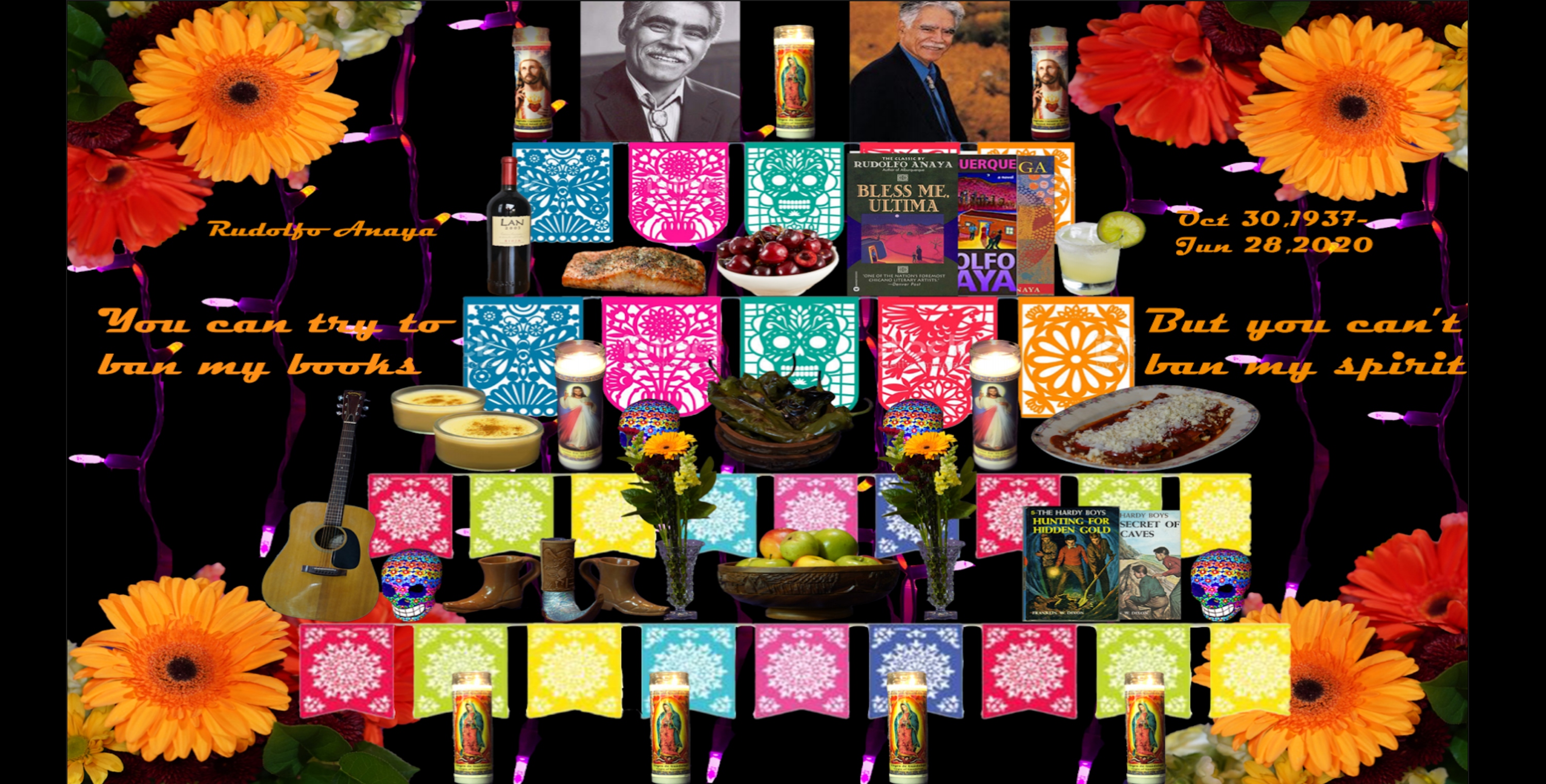ASU’s Polytechnic campus students create virtual altar for Day of the Dead

While some holiday traditions may be in jeopardy this year because of the pandemic, one small group of students at Arizona State University’s Polytechnic campus will celebrate an important Hispanic holiday by bringing the festivities to life in the digital space.
Every fall for the past few years, students enrolled in the English course “Transborder Chicano Literature” are asked by their professor to create a timely, themed altar for the Day of the Dead, which is celebrated Nov. 1–2. This year, because of the pandemic, the altar — or ofrenda (offering) — will be virtual.
“The focus for this year is on deceased Chicana/o/x authors, prompted by the recent passing of Rudolfo Anaya, who is the godfather of Chicano literature,” said Vanessa Fonseca-Chávez, assistant professor of English in the College of Integrative Sciences and Arts. “This year, the students got into four different groups; each of them chose the author that they were going to work on, and they created individual altars for the authors. And over the past two weeks, they found a way to make one big (virtual) altar.”
The students, who were given full creative control, used innovative graphic design techniques to put the altars together into a slide show. One of the deceased authors even narrated his own story, thanks to technology.
A virtual ofrenda for late author Rudolfo Anaya, created by ASU students.
Benigno Guadarrama, an undergraduate student majoring in technological entrepreneurship and management in the Ira A. Fulton Schools of Engineering, said he enjoyed creating the altar for his author as if he was a family member.
“It’s a beautiful tradition, and (Día de los Muertos) taught me growing up the acceptance of death, and to not see it in a sad way,” Guadarrama said. “My family would celebrate it each year, and it helped me feel closer to a lot of relatives that I was not able to meet, or I didn’t know. Overall, it just took away any anxiety or fear that’s related to death.”
Fonseca-Chávez said she is “100% amazed” by what her students were able to pull together. She explained that she picked this group of authors because she wanted the students to think about a range of Chicano authors from different backgrounds and from different generations.
"Anaya is old-school and represents, for many, that first generation of Chicanx literature," Fonseca-Chávez said. “Gloria Anzaldúa’s work paved the way for Chicanx feminists and queer communities to theorize their borderland experiences. Francisco X. Alarcón was a wonderful poet who drew upon Indigenous Nahuatl languages and also wrote children’s books. And Michele Serros was a really cool skateboarding Chicanx whose writing explored the many ways one could live their Chicanx identity.”
In years past, prepandemic, the project has been a conversation starter, especially amongst the Latino community on the Polytechnic campus, who were able to visit the altar in person in the Student Union and leave a message for a deceased loved one.
“I think it really goes to show you how important these holidays are in the Latinx community,” said Eric Daniels, an undergraduate business major in the W. P. Carey School of Business. “Even though it’s the Day of the Dead, it’s really a celebration of their life and a remembrance of their life, so I think moving forward, I know at least from my personal life, this is something that I’ll be able to celebrate even if it is virtually. Or, hopefully, as the years get better with the pandemic, we can celebrate as a bigger community.”
Now through Nov. 3, the ASU community is invited to virtually visit the students' Day of the Dead altar, and to leave an ofrenda for a deceased loved one.
More Arts, humanities and education

ASU professor wins Coretta Scott King Book Award for historical children's novel
Jewell Parker Rhodes didn’t set out to write books for young people.Rhodes, a faculty member in Arizona State University’s College of Integrative Sciences and Arts, had written adult novels for 30…

ASU students turn required academic project into benefit for Make-A-Wish Arizona
Every student in Arizona State University's Barrett, The Honors College is required to complete a thesis before graduating. Many spend months, sometimes years, deciding on a topic.For third…

Sun Devil seizes opportunity to ‘be the change’ at ASU
When Jayla Jackson not only won Harvard University’s international debate competition but did so as part of the first undefeated Black female duo with her partner Emani Stanton, she wasn’t content to…
